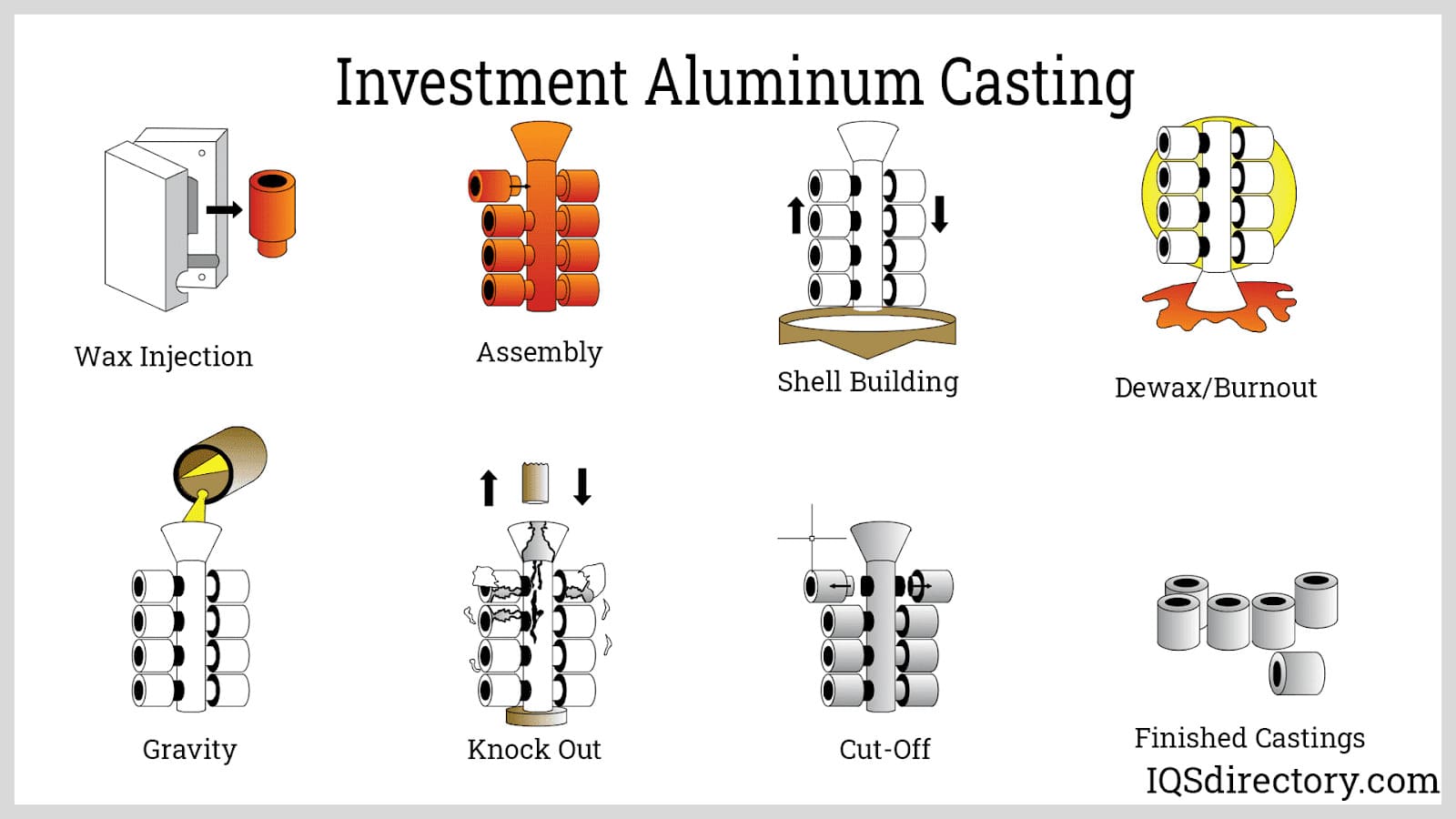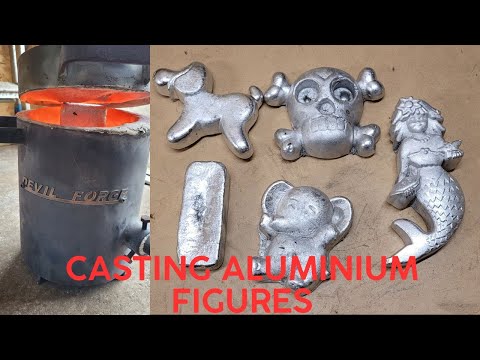All about Stahl Specialty Company
All about Stahl Specialty Company
Blog Article
9 Simple Techniques For Stahl Specialty Company
Table of ContentsFacts About Stahl Specialty Company UncoveredGet This Report on Stahl Specialty CompanyStahl Specialty Company - An OverviewStahl Specialty Company - QuestionsStahl Specialty Company for DummiesThe Facts About Stahl Specialty Company Uncovered

If you're developing a metal product, you've likely thought about utilizing light weight aluminum as the base product. It has a high strength-to-weight ratio, great corrosion resistance, great formability, and aesthetic charm. These factors have actually resulted in its boosted appeal in recent years. Pure aluminum has restricted applications, so it is usually incorporated with other components, such as silicon, magnesium, and manganese to form alloys.
Different components and quantities create a wide array of desirable physical and chemical buildings. And the Light weight aluminum Organization (AA), based in The United States and copyright, has actually developed specs that regulate light weight aluminum alloys' composition, homes, and nomenclature. There are two kinds of aluminum alloys wrought and cast. Factory employees form these alloy types in various means, which significantly impacts their attributes.
All about Stahl Specialty Company
Cast aluminum alloys are made by melting pure aluminum and incorporating it with various other steels while in liquid form. The mix is put right into a sand, die, or investment mold.

160.0 represents a cast with a minimum of 99.60% aluminum. The 4th figure, which follows the decimal factor, defines if the alloy is a spreading (xxx. 0) or an ingot (xxx. 1). Wrought aluminum alloys also start by combining molten light weight aluminum with various other steels. Unlike cast alloys, nevertheless, they are formed into their final shape via procedures such as extrusion, rolling, and flexing after the steel has solidified into billets or ingots.
There are several small differences in between functioned and cast aluminum alloys, such as that actors alloys can consist of much more significant amounts of other steels than wrought alloys. The most significant difference in between these alloys is the construction process with which they will certainly go to deliver the last product. In addition to some surface therapies, cast alloys will certainly exit their mold and mildew in almost the specific solid kind preferred, whereas functioned alloys will undertake a number of modifications while in their solid state.
If you think that a functioned alloy might be the most effective for your project, take a look at several of our write-ups that discuss more concerning details functioned alloys, such as Alloy 6061 and Alloy 6063. On the other hand, if you assume a cast alloy would certainly be better for you, you can find out a lot more about some cast alloys in our Alloy 380 and Alloy 383 articles (coming soon).
5 Simple Techniques For Stahl Specialty Company
When selecting an aluminum factory for your production requirements, it's vital to research several elements. Among one of the most critical aspects to take into consideration is the experience and competence of the factory. Aluminum Casting. Choosing a foundry who has the ideal expertise of the light weight aluminum spreading process, and the profile to show for it, helps to have a successful end result for your task
Having the experience and industry knowledge to engineer your castings for optimal production and top quality outcomes will improve the project. Producing aluminum castings needs a complex set of processes to achieve the best outcomes. When determining on a brand-new light weight aluminum factory to partner with, ensure they have considerable sector experience and are knowledgeable concerning all aspects of the light weight aluminum casting process: design, production, material evaluation, and product screening.
The shop must likewise have a tested record of delivering remarkable products that fulfill or go beyond client expectations. Quality control needs to likewise be at the top of your listing when choosing a light weight aluminum foundry. By functioning with a certified factory who adheres to the requirements for quality control, you can secure the stability of your product and guarantee it satisfies your specifications.
By picking a business that provides solutions that satisfy or surpass your product needs, you can be sure that your task will be finished with the utmost precision and performance. Different components require different manufacturing techniques to cast light weight aluminum, such as sand casting or die spreading.
Stahl Specialty Company Fundamentals Explained
Die casting is the name offered to the process of developing complicated metal elements through use mold and mildews of the element, likewise referred to as passes away. The procedure makes use of non-ferrous metals which do not include iron, such as light weight aluminum, zinc and magnesium, as a result of the preferable homes of the steels such as reduced weight, greater conductivity, non-magnetic conductivity and resistance to deterioration.
Die casting production is fast, making high production levels of components simple. It creates more elements than any type of various other procedure, see this here with a high level of accuracy and repeatability. To get more information regarding die casting and die casting materials used at the same time, continued reading. There are three sub-processes that fall under the category of die casting: gravity die spreading (or irreversible mold and mildew spreading), low-pressure die spreading and high-pressure die spreading.
Despite the sub-process, the die casting process can be damaged down into six steps. After the pureness of the alloy is checked, dies are created. To prepare the dies for spreading, it is vital that the passes away are clean, so that no deposit from previous productions remain. After cleansing, the ejection lubrication is related to the die to make certain a smooth release.
Stahl Specialty Company - An Overview
The pure metal, likewise known as ingot, is included in the heater and kept at the molten temperature level of the steel, which is after that transferred to the shot chamber and injected into the die. The stress is then preserved as the steel solidifies. When the steel solidifies, the cooling process starts.
(https://stahlspecialc.edublogs.org/2024/12/14/your-trusted-foundry-near-me-unraveling-excellence-in-casting-foundry-and-aluminum-castings/)
The thicker the wall of the part, the longer the cooling time due to the quantity of indoor metal that also needs to cool. After the part is completely cooled, the die cuts in half open and an ejection system presses the element out. Adhering to the ejection, the die is shut for the next injection cycle.
The flash is the added material that is cast during the process. This should be cut off using a trim device to leave simply the major element. Deburring gets rid of the smaller items, called burrs, after the cutting procedure. The element is brightened, or burnished, to provide it a smooth finish.
Facts About Stahl Specialty Company Uncovered

Zinc is one of the most used alloys for die casting due to its lower cost of raw products. Its deterioration resistance additionally allows the parts to be lengthy long-term, and it is one of the extra castable alloys due to its reduced melting factor.
As pointed out, this alloy is just one of one of the most frequently made use of, yet produces will, at times, choose aluminum over zinc because of light weight aluminum's production advantages. Aluminum is very affordable and one of the extra functional alloys. Aluminum is used for a number of different items and sectors anything from home window frameworks to aerospace materials.
Report this page